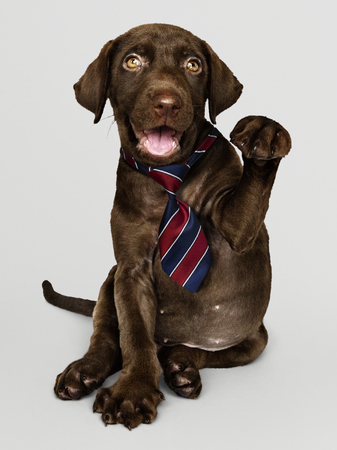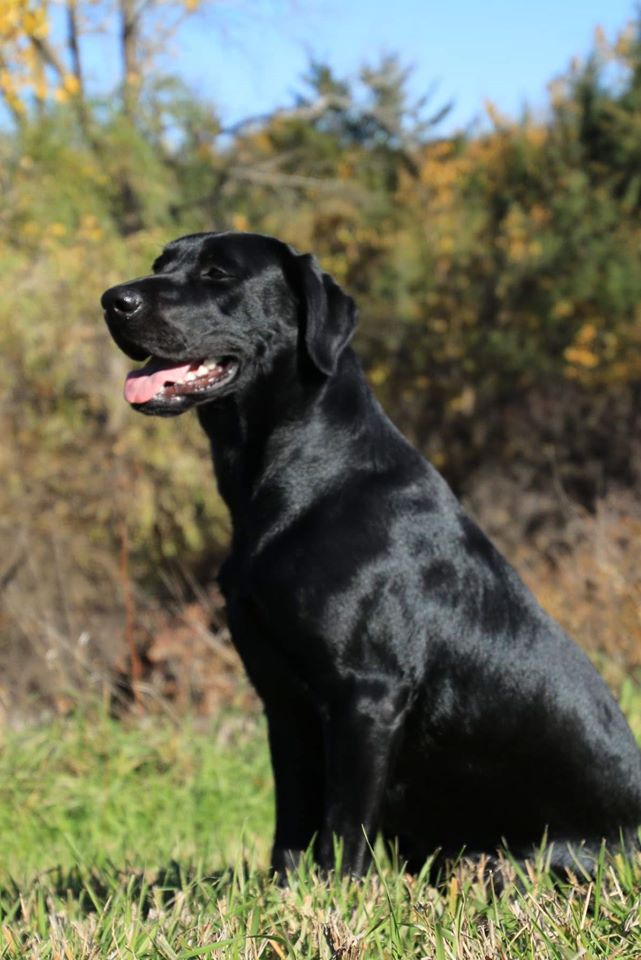Over time society has learned that dogs make not only loyal, lovable companions, but also intelligent and hardworking employees! While dogs ultimately want to come home at night to cuddle and play with their favorite humans, they do have excellent traits and instincts that make them incredible members of the working world.
In fact, many of their favorite things to do—such as play and exercise—translate well to a number of career fields and enable them not only to excel, but to do so happily. Labrador Retrievers, specifically, make exceptionally good workers. Check out a few of their most common and rewarding gigs!
 Hunting Dogs
Hunting Dogs
Perhaps in their most natural role, labs very regularly work as hunting and shooting dogs. They are, as their name suggests, instinctively retrievers; they retrieve game for hunters. This has been their most prominent role since the origin of the breed.
The Labrador’s ancestors were “water dogs,” or fishing dogs trained to retrieve fishing nets, lines, ropes, and even dive down for escaped catches. Many labs today are still specifically trained to fetch this type of game—waterfowl dogs, for example.
As the breed has evolved, they have also become excellent pointers, meaning they locate game and indicate that location to the hunter by “pointing” with their snouts. Pointing labs are trained to be calm, but aggressive when necessary. While all colors are qualified, hunters have historically preferred black labs as their partners of choice, perhaps because their coats lend better camouflage in the field.
If you’re interested in Pointing Labs or the process of training a hunting dog, you can learn more here.
Police Dogs
A lot of the qualities that make Labrador Retrievers ideal hunting dogs make them skillful members of the police force as well. A lab’s natural focus and obedience translates well to policework that may at some points become delicate and require deep concentration. They’re easy to train and get along well with people.
A lab’s remarkably strong noses qualifies him for many different—and vital—search tasks such as identifying and locating drugs, weapons, explosives or even people. They were bred to detect game, arming them with a particularly adept and valuable sense of smell. This makes them further useful in search and rescue missions for sniffing out survivors that may be buried under rubble and otherwise undetectable.
Labs are high energy and intelligent; they’re built to run and need both exercise and mental stimulation to thrive. These attributes make the Labrador Retriever the most reliable (and most adorable) partner in the field.
Service Dogs
Labradors make great service dogs for the same reasons they make great pets: they’re loyal, sweet-natured, profoundly social and can be very well-trained. They have the ability to adapt to many different situations, and their functionality in the medical field is palpable.
Labs are quintessential guide dogs, often for the visually impaired but for other disabilities as well. They can be taught to assist with everyday tasks that can be nearly impossible for someone who may be blind or partially-paralyzed. They’ve even been used to assist individuals with genetic disorders that compromise bones and joints and make movement very painful. Labs can be trained to pick up objects, push crosswalk buttons, open doors and even help people get dressed.
Additionally, Labrador Retrievers can be coached in detecting certain medical conditions—they’ve been used to identify seizure activity before it happens, as well as detect low blood sugar and other potentially dangerous health situations. Their peaceful demeanor, love for people, and friendly personalities make them excellent therapy dogs as well.
Lankas Labs is a prominent Pointing Lab Breeder in the state of Kansas, and we’re happy to discuss with you the different training opportunities for your lab and how we ensure our pups are bred and trained for action!

